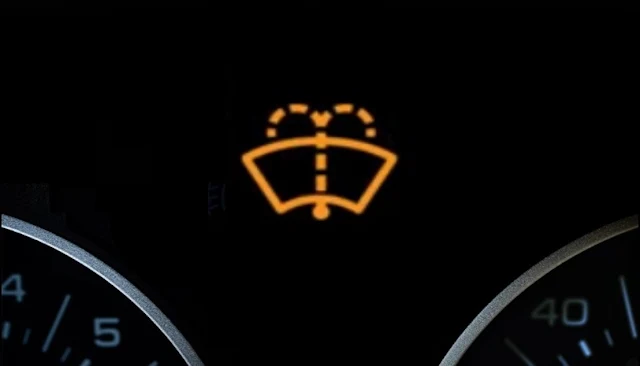Estimated Reading Time: 5 minutes
Regular car maintenance is key to ensuring your vehicle runs smoothly, safely, and efficiently. Proper care not only extends the lifespan of your car but also helps you avoid expensive repairs down the road. Whether you're a seasoned car owner or a new driver, knowing the basics of car maintenance can make a significant difference. In this guide, we'll explore essential car care tips that every driver should know, focusing on high-traffic search keywords to provide you with helpful, SEO-optimized information.
Why Car Maintenance is Crucial
Car maintenance is essential for a variety of reasons. It ensures your vehicle operates optimally, improves fuel efficiency, reduces repair costs, and enhances safety. A well-maintained car can also help you avoid unexpected breakdowns and improve resale value.
Regular maintenance allows your vehicle’s engine, transmission, tires, and other key components to function effectively. By staying on top of routine tasks, you can prevent major issues and keep your car running smoothly for years to come.
1. Change Your Oil Regularly
One of the most basic yet essential car maintenance tasks is changing your oil. Fresh oil lubricates the engine, reducing friction and preventing overheating. Most manufacturers recommend changing the oil every 3,000 to 5,000 miles, but this can vary depending on the make and model of your car. Keeping your oil clean and at the proper level can also improve fuel efficiency and increase engine performance.
2. Check and Replace Air Filters
3. Inspect and Rotate Tires
Tire maintenance is another critical aspect of car care. Under-inflated or worn-out tires can compromise your car's handling, fuel efficiency, and safety. Be sure to check tire pressure at least once a month and rotate the tires every 6,000 to 8,000 miles to ensure even wear.
Proper tire maintenance not only extends tire life but also improves traction and handling, especially in wet or icy conditions.
4. Monitor Fluid Levels
In addition to oil, there are several other essential fluids in your car that need to be checked regularly. These include coolant (antifreeze), brake fluid, transmission fluid, and power steering fluid. Low fluid levels can result in poor vehicle performance and, in some cases, serious damage to engine components.
Be sure to regularly inspect fluid levels and top them off when necessary. If you notice a significant drop in fluid levels, it may indicate a leak that should be addressed immediately.
5. Maintain Your Brakes
Brakes are arguably the most critical safety feature in your car. Regular brake maintenance is necessary to ensure that your braking system functions properly. If you hear squeaking or grinding noises, or if your car pulls to one side when braking, it’s time for a brake inspection.
Routine brake checks include inspecting brake pads, rotors, and fluid levels to ensure the system is in good working condition. If the brake pads are worn down, they should be replaced immediately.
6. Replace Wiper Blades and Check Lights
Your vehicle’s wiper blades are essential for visibility during rainy or snowy conditions. Over time, wiper blades wear out and can leave streaks on the windshield, making it harder to see clearly. Replacing wiper blades every 6 to 12 months ensures a safer driving experience.
Additionally, regularly check that all exterior lights, including headlights, tail lights, brake lights, and turn signals, are functioning properly. Malfunctioning lights can be a safety hazard and may also lead to fines.
7. Keep Your Battery in Check
8. Get Regular Car Inspections
Even if you’re diligent about your regular maintenance tasks, it’s still important to have your car inspected by a professional mechanic at least once a year. A full vehicle inspection can catch potential problems early before they turn into major, expensive repairs.
A professional mechanic will inspect the exhaust system, suspension, and other key parts of the vehicle to ensure everything is in top shape.
9. Keep Your Car Clean and Waxed
10. Drive Smoothly and Responsibly
Your driving habits also play a significant role in your car’s maintenance. Avoid sudden stops, aggressive acceleration, and excessive speeds, as these can put unnecessary strain on your car’s engine and brakes. Smooth, cautious driving habits reduce wear and tear on your vehicle and increase its longevity.
Conclusion
Keeping your car in top shape doesn’t have to be complicated or time-consuming. By following these simple and effective car maintenance tips, you can extend the life of your vehicle, improve safety, and reduce the likelihood of costly repairs. Remember to regularly check fluids, tires, and brakes, and don’t forget to have professional inspections done on an annual basis. With proper care and attention, your vehicle will remain reliable for years to come.
Call to Action: For more tips and expert car maintenance advice, subscribe to our newsletter or contact a trusted mechanic in your area today.
By consistently implementing these maintenance practices and using the right tools, you can ensure your car stays in excellent condition, leading to a smoother and more enjoyable driving experience!
Referance Source:
https://www.caranddriver.com/features/a26767309/car-maintenance-tips/










